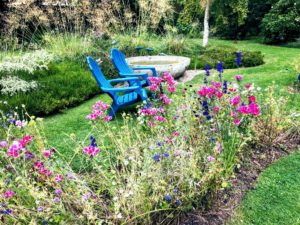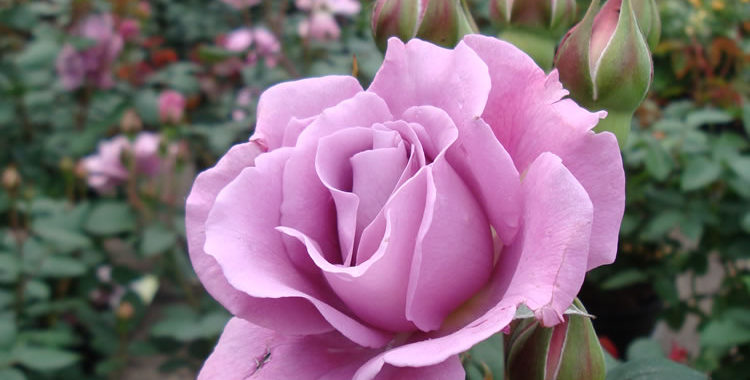What to do Now in September mid Autumn
- Choose the flowers you would like to collect seed from .Take a photo to remind yourself of what it looked like and where it was in the garden. Seeds only germinate when harvested ripe.
- Harvest the last of your rhubarb. If you don’t have time to use it simply wash it, chop and freeze for a later date.Very handy for a quick crumble and also when you are ready to make jam — don’t forget the ginger.Tomatoes also freeze really well for sauce making later.
- Tip prune fruit trees for shape, fruit is usually borne on older growth.
- Repair damaged lawns, also prepare ground for both new lawn sowing and wild flower meadows.
- Start dividing clumps of perennials, if they need division. Soil nice and warm to allow for root growth helping divisions get going again.Could be a bit on the late side for grasses.Grasses are best divided in late spring, when the soil is warming up.Also cuttings, now for overwintering.
- Start planting you’re early spring bulbs, it is much easier now as the garden is warm, you can see the gaps for planting among the perennials. Summer / autumn bulbs, which have flowered, or still flowering, if you are not happy where they are, move them and remember to allow the foliage to die naturally feeding the bulbs, tubers for next year. Plant tulip bulbs in colder weather.
- Autumn containers — be adventurous, bulbs, annuals perennials small shrubs , etc. Happily it is still nice and warm, wind is drying plants in containers cut down on feeding, or simple plant up for winter.Summer containers are wonderful, and we also need winter interest. Think of a mini garden and what plants would give colour and texture. During the short days we often spend a great deal of time looking out through our windows, activity in the garden, birds even foxes playing(not with or chickens) can be joyful and really beneficial to our environment.
- Turn your compost, make room for all the new clippings you will have in the next couple of months. Think about how to store your leafs so as to have the use of such a valuable soil additive. Leafs breaks down quicker when shredded, this applies to all composted material.
- Cleared vegetable beds, which you are not going to use until spring, either cover or grow a green manure.
- Take notes of your favourite autumn colour, the plants, the shrubs and the trees and see if you can imitate in your space.
Lots to do.Get as much done now as the evenings are drawing in quickly and it is still warm. Don’t strip everything backs as it provides cover for not only the soil but the creatures that live there.Water, drinking water also crucial for visiting creatures. Focus on tidying your edging, preparing your compost heaps if you need help having your hedges cut book your help now.As autumn continues into winter, we will be coming into bare root planting season.Lots of opportunities.
In our Autumn classes we will be covering all  of this and more.
of this and more.

